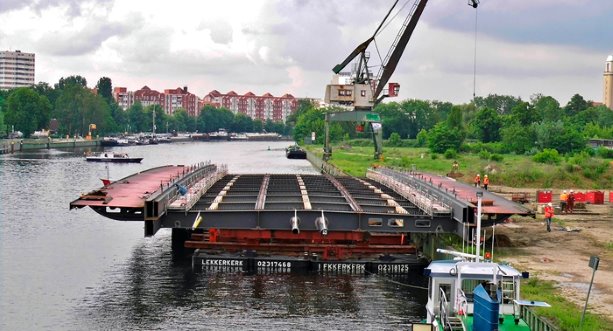Infrastructure Ontario (IO) has indicated it will be taking a leadership role in adopting a new international system for measuring construction costs and defining projects that was recently introduced by a global industry coalition.
The new standard from the International Construction Measurement Standards (ICMS) Coalition will enable better comparison of proposals in order to improve investor confidence, reduce risk and attract more funding, explained the ICMS announcement issued July 25.
But it also requires construction stakeholders worldwide to rip up existing standards and adopt and learn the new ones, noted an ICMS executive.
The ICMS said applications for the new standard include global investment decisions, project cost comparisons, feasibility studies and development appraisals, project work including cost planning and control, cost modelling, analysis of tenders and even dispute resolution work.
"If we all followed the same standard and all published the same way, I think that would really help taxpayers and governments and everybody else compare costs and look at people’s performance," said John McKendrick, executive vice-president of IO.
Ken Creighton, U.K.-based chair of the ICMS Coalition and director of professional standards at the Royal Institution of Chartered Surveyors (RICS), acknowledged the switch to the new ICMS standard would place a burden on many construction stakeholders around the world but McKendrick said IO was well placed to change its documentation practices.
It already publishes an annual report that includes many of the new ICMS system requirements, he said.
"We have created a standard, when we published our Track Record Report, we laid out our methodology for doing it, so we would be open and transparent for how we measure our performance," he explained. "But as far as I can tell, I haven’t seen anywhere else in the world where anybody does this.
"What we’re doing will be very close to what they’re proposing. And so there will be very minor change from our perspective."
McKendrick noted IO was approached by the ICMS Coalition to participate and said internally within IO the new standard requires formal policy approval.
The ICMS Coalition was established by 46 organizations that represent quantity surveyors, building surveyors, engineers, engineering consultants and architects on every developed continent.
Creighton said RICS has found there can be a 28-per-cent variance in the cost of a construction project depending on where it’s based.
"If you think about investment and the kind of analysis that people on Wall Street demand, comparability, if you are going to do this with the kind of professionalism that you expect in 2017, it’s crazy to think that they wouldn’t have this kind of comparability, but that’s the reality without ICMS," said Creighton.
The new standards hammered out this year provide a structure and format for classifying, defining, measuring, analyzing and presenting construction costs, noted the ICMS document. Cost classification standards were established for buildings and selected types of civil engineering projects covering road and rail transport, energy, oil and gas and the utility sectors.
Sample standards include the definition of hard shoulders on roadways and whether accesses to bridges are defined as roadways or part of the bridge infrastructure.
The problem was not that there were no standards before, said Creighton, but rather that there were too many standards, which means in reality there is no standard.
Even RICS, a worldwide leader in financial accountability in the construction sector, will have to abandon its New Rules of Measurement, he said.
"I am the director of standards at RICS, and the message to these organizations was, we are going to give up our standards, we are going to work with you, we are going to rely on this group of experts that are tasked with writing it. We don’t know what they are going to come up with, but we are going to make sure we get the right people and follow the right process and consult, and we will accept it," said Creighton.
Commenting on the burden for stakeholders as they adopt the new practices, Creighton said, "There will be change."
Western and other developed countries already have sophisticated practices in place, he said, but elsewhere there are not always extensive standards followed.
"Where this becomes interesting, there are a number of software providers and data products out there," he said.
"My organization has something called BCIS, Building Construction Information Services, and this is the equivalent of multiple organ transplant surgery, we need to take out the old taxonomy and put in the new one. It’s a big deal."
The next stage is to encourage adoption of the new ICMS standards around the world. Creighton said the U.K. Department of Transport recently selected an ICMS standards devotee to develop a cost comparisons program for its multiple rail systems, and besides IO, major international players Arup, Arcadis, Gardiner and Theobold, Faithful+Gould, Turner & Townsend and Gleeds have announced their support for ICMS.
"To be very clear, this project will be purely academic unless end users say to people, there is no way we are going to approve this money unless we have it costed by ICMS," said Creighton.







Recent Comments
comments for this post are closed